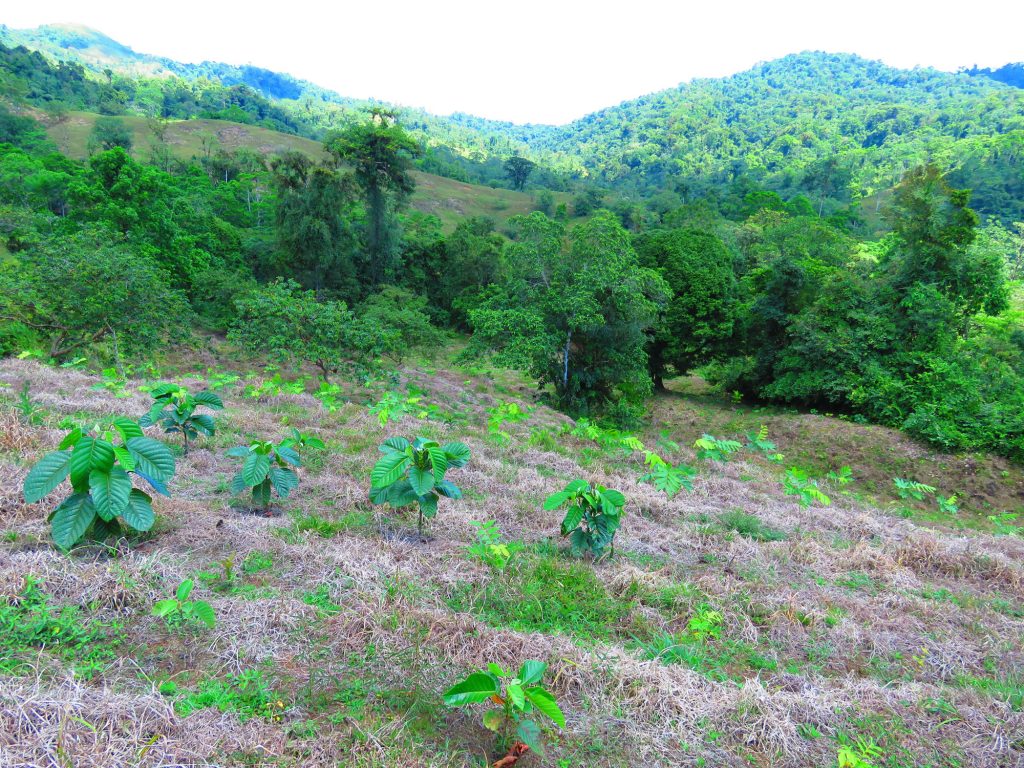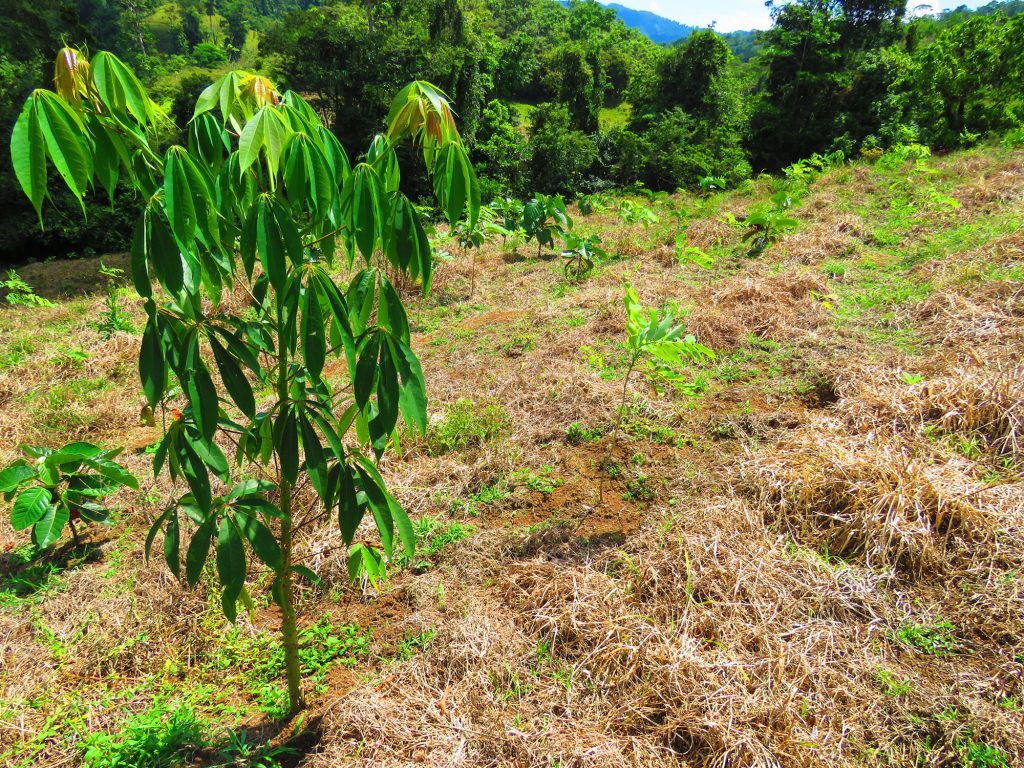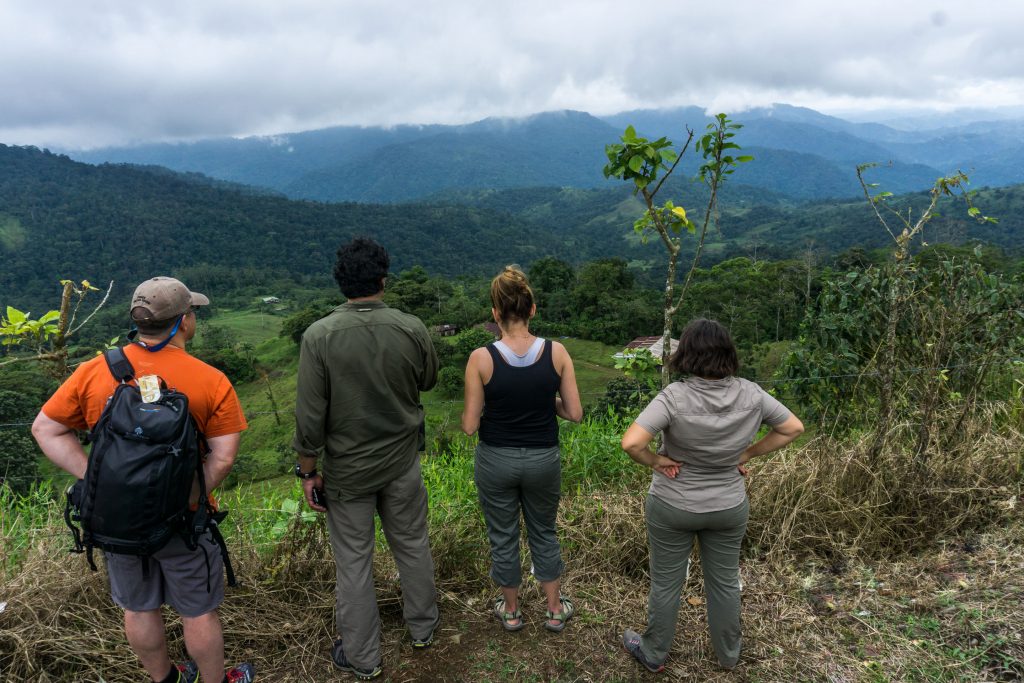Rios Tropicales Reforestation Campaign Successfully Takes Root
By Shannon Farley
Less than a year after the massive reforestation campaign in the Rios Tropicales Private Rainforest Reserve of 5,000 tree seedlings, planted for the International Carbon Neutral Alaska - Costa Rica Project, the young trees are successfully growing into a forest.

Besides producing oxygen, the native Costa Rican trees are helping to offset carbon dioxide emissions produced during the Adventure Travel World Summit 2016, held in Anchorage, Alaska in September. The tree planting in August 2016 on the private reserve by the Pacuare River was one of Costa Rica’s largest reforestation events, and certified the ATWS 2016 as the first-ever carbon neutral conference for the global Adventure Travel Trade Association.
“We have a higher than 85% success rate, which is very good given all of the threats of the rainforest,” said Rafael Gallo, Co-founder and President of Rios Tropicales and President of the Costa Rican Network of Private Nature Reserves. “It’s a lot of work to care for the trees for the first three years; after that they are self sufficient.”
Community members from the nearby town of Bajos del Tigre have been working to take care of the 5,000 trees, along with other trees planted on the Rios Tropicales Private Reserve. They keep weeds cut back so the trees aren’t overgrown, and control ants and other insects from devouring the saplings.

“I am very pleased to see how the people of the community of Bajos del Tigre have supported the project by caring for the trees, including schoolchildren who helped plant the trees and who now return to watch over their welfare and growth, and even plant more trees,” said Gallo.
It will take an estimated 12 to 14 years for the Alaska-Costa Rica Project trees to capture the approximately 1,200 tons of carbon dioxide estimated to be produced during the ATWS 2016, principally by conference-goers’ air flights. Ongoing verification of the carbon compensation is led by Edmundo Castro, head of carbon neutrality for the prestigious EARTH University in Siquirres, Costa Rica.

“We hope that this type of tree-planting project is replicated both in Costa Rica and at the next Adventure Travel Trade Association World Summit,” Gallo commented.
In Costa Rica, Gallo plans to plant approximately 60,000 native Costa Rican trees over the next 10 years on 75 hectares of pastureland remaining in the Rios Tropicales rainforest restoration project.
The Rios Tropicales Private Rainforest Reserve is the largest private reserve along the renowned Pacuare River, one of the five best rivers in the world and an area home to indigenous Cabecar communities and endangered wildlife. The Rios Tropicales reserve protects 2,409 acres (975 hectares) of primary rainforest and pastureland being converted back to rainforest.
To date, 28,324 native trees have been planted in the reserve, storing close to 15,000 tons of carbon annually according to studies done, which makes Rios Tropicales a completely carbon neutral business in Costa Rica.
Rios Tropicales joins the efforts of the Trees for the Earth campaign by the Earth Day Network to plant 7.8 billion trees worldwide by April 22, 2020, the 50th anniversary of Earth Day. The number of trees is meant to equal one for every person projected to be on Earth.
